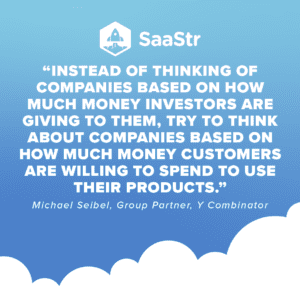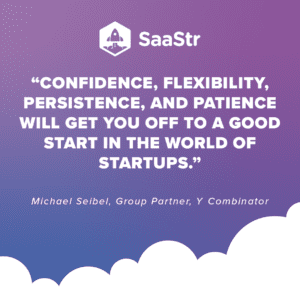Over the last eight years as Y Combinator’s Managing Director and Group Partner, I’ve advised thousands of startup founders on their businesses. There are eight pieces of advice I find myself giving most often, and I’ll be explaining and exploring each one below. I’ll also be diving into why I give this advice, how it’s helpful, and how I see founders doing it wrong.
Launch now
This is not a new piece of advice. In fact, it’s quite old. It’s worth mentioning, though, because it’s not uncommon to hear advice suggesting founders should wait to launch until their product is perfected. The problem is, it’s pretty much impossible to create the perfect product before you put it in front of your customers.
Founders tend to default to the newer and more controversial advice rather than the more traditional advice. Why? I don’t know. But in this case, it’s much more advisable to go with the tried-and-true advice. The reason for this is that in starting any company you will have a set of assumptions you make about what your customers want and how your product will serve them. In the beginning, this is a motivating lie that helps get you started. Once you put your product in front of those customers, that lie becomes deadly if you hang on to it.
Often, I find the founders who wait too long to launch are less willing to let go of the assumptions they held in initially building their product. Those who launch quickly are more adaptable.
Build something people want
A seemingly simple piece of advice, you’d be surprised how many founders I see not follow it. The crux of the issue is whether you’re building a business or an art form. If the former, then you need to actually serve your customers.
Ask yourself if you’re just trying to get the thing in your head out into the world because you assume people need and want it. Because if that’s the case, you’re acting like an artist, not a business owner.
As a founder, you have to understand that by running a business you must put your customers’ concerns and interests above your own.

Do things that don’t scale
When you’re competing against larger companies, you can’t win by playing their game. They will always have more money, more people, and more resources than you do. Scaling as much as you can and copying the moves of the bigger organizations is not the way to go. Instead, fight back by doing what they can’t or won’t do, namely, things that don’t scale.
What you should be thinking about is how you can understand your customers better. Find out exactly what they want in a product. Talk to them. Get to know them. Develop a relationship with them. While this is not a scalable move in the least, it will help you measure up to the big incumbent. You’ll learn ten times faster, iterate product ten times faster, solve your customers’ problems, and grow.
Doing things that don’t scale can often feel counterintuitive to a founder, but it’s an essential part of making it as a small startup.
Find the 90/10 solution
A Y Combinator partner of mine came up with this advice, and I’ve found it to be one of the most useful things I’ve picked up over the years.
Succinctly, the 90/10 solution is a simple question you can ask yourself anytime you come up with a feature idea. How do I get 90% of what I want with only 10% of work? This is hard for founders to swallow because most of them are looking for perfection. But this brings us back to the business owner versus artist question again. Your product will change when it’s put in front of an audience. Or it should change. It doesn’t need to be perfect right away. And the faster you can get a product out there the faster you can iterate a new version of it based on the feedback.
Remember that the money you’ve raised is not your money
While this has only come up with a couple of the founders I’ve worked with, it’s still an extremely important reminder. Always remember to spend your company’s money ethically and with full transparency. If you’re afraid to expose your bank account to your angel investors or co-founders then you’re doing something wrong.
High valuation doesn’t necessarily equate to success
These days there is more and more money being poured into tech startups than ever. Investors have realized how revolutionary technology is and they are ready to invest heavily. This means high valuations don’t equate to success, they just mean there’s a lot of money floating around.
Instead of thinking of companies based on how much money investors are giving to them, try to think about companies based on how much money customers are willing to spend to use their products. Rather than describing it as a Series A or B or C company, call it a company with a million, ten million, or one-hundred million in revenue.
Remember to look at a company’s core metrics rather than assuming a high valuation is a good proxy for the core metrics.

You will need to fire some of your customers
Filtering customers is the name of the game in early-stage startups.
Instead of selling to any customer that comes your way, you need to find the customers who are perfect for your product. Find the customers who don’t need to be convinced to buy it. These are the customers who have been waiting for this solution for years, are willing to try early-stage software, endorse the product to make a deal happen, and spend the money you’re asking for.
Let yourself be okay saying no to the harder customers. Once you get those easy customers on board you’ll have more resources to start convincing the harder customers to buy too.
Scaling too late is harmful, but scaling too early is fatal
Every founder asks themselves if it’s time to scale. It’s not easy to get the timing right, but the truth is that scaling too early can kill your business, and it’s what I see many founders doing.
So what’s going on here? Why are founders scaling too quickly these days? Well, there are a couple of factors.
The first has to do with expectation setting. A lot of founders have unrealistic expectations about how fast their products will succeed. The reality is that it might take you six months to find product-market-fit or it might take you six years. You just don’t know.
The second has to do with peer groups. We all know how it felt in school and even later in life to be motivated by the actions of our peers, whether it had to do with applying to certain colleges or making a specific career move. Unfortunately, if you do that with your peers in the startup world, it’s much more likely that your business will fail. Because it’s so common for founders to try to scale as fast as they can these days, even before they have product-market-fit, their peers are more willing to follow in their footsteps. It’s not a smart move, but when everyone around you is doing the same thing, it’s hard not to want to follow suit.
My advice: let yourself be the loner this time around.
Key Takeaways
So there you go, eight pieces of the most common advice I give to the founders I work with at Y Combinator. Time and time again I see founders fail when they don’t launch their product soon enough, refuse to serve their customers’ needs, try to find scalable solutions to everything, stick to the fantasy of perfection, or scale too quickly.
Hopefully, this advice can benefit early-stage founders out there. My last suggestion: confidence, flexibility, persistence, and patience will get you off to a good start in the world of startups.

